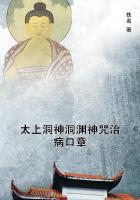It was my pleasure, my privilege, to bring Gunnar before the public as editor of the Atlantic Monthly, and to second the author in many a struggle with the strange idiom he had cast the story in. The proofs went back and forth between us till the author had profited by every hint and suggestion of the editor. He was quick to profit by any hint, and he never made the same mistake twice. He lived his English as fast as he learned it; the right word became part of him; and he put away the wrong word with instant and final rejection. He had not learned American English without learning newspaper English, but if one touched a phrase of it in his work, he felt in his nerves, which are the ultimate arbiters in such matters, its difference from true American and true English.
It was wonderful how apt and how elect his diction was in those days;it seemed as if his thought clothed itself in the fittest phrase without his choosing. In his poetry he had extraordinary good fortune from the first; his mind had an apparent affinity with what was most native, most racy in our speech; and I have just been looking over Gunnar and marvelling anew at the felicity and the beauty of his phrasing.
I do not know whether those who read his books stop much to consider how rare his achievement was in the mere means of expression. Our speech is rather more hospitable than most, and yet I can remember but five other writers born to different languages who have handled English with anything like his mastery. Two Italians, Ruffini, the novelist, and Gallenga, the journalist; two Germans, Carl Schurz and Carl Hillebrand, and the Dutch novelist Maarten Maartens, have some of them equalled but none of them surpassed him. Yet he was a man grown when he began to speak and to write English, though I believe he studied it somewhat in Norway before he came to America. What English he knew he learned the use of here, and in the measure of its idiomatic vigor we may be proud of it as Americans.
He had least of his native grace, I think, in his criticism; and yet as a critic he had qualities of rare temperance, acuteness, and knowledge.
He had very decided convictions in literary art; one kind of thing he believed was good and all other kinds less good down to what was bad; but he was not a bigot, and he made allowances for art-in-error. His hand fell heavy only upon those heretics who not merely denied the faith but pretended that artifice was better than nature, that decoration was more than structure, that make-believe was something you could live by as you live by truth. He was not strongest, however, in damnatory criticism.
His spirit was too large, too generous to dwell in that, and it rose rather to its full height in his appreciations of the great authors whom he loved, and whom he commented from the plenitude of his scholarship as well as from his delighted sense of their grandeur. Here he was almost as fine as in his poetry, and only less fine than in his more fortunate essays in fiction.
After Gunnar he was a long while in striking another note so true. He did not strike it again till he wrote 'The Mammon of Unrighteousness', and after that he was sometimes of a wandering and uncertain touch.
There are certain stories of his which I cannot read without a painful sense of their inequality not only to his talent, but to his knowledge of human nature, and of American character. He understood our character quite as well as he understood our language, but at times he seemed not to do so. I think these were the times when he was overworked, and ought to have been resting instead of writing. In such fatigue one loses command of alien words, alien situations; and in estimating Boyesen's achievements we must never forget that he was born strange to our language and to our life. In 'Gunnar' he handled the one with grace and charm; in his great novel he handled both with masterly strength. I call 'The Mammon of Unrighteousness' a great novel, and I am quite willing to say that I know few novels by born Americans that surpass it in dealing with American types and conditions. It has the vast horizon of the masterpieces of fictions; its meanings are not for its characters alone, but for every reader of it; when you close the book the story is not at an end.
I have a pang in praising it, for I remember that my praise cannot please him any more. But it was a book worthy the powers which could have given us yet greater things if they had not been spent on lesser things.
Boyesen could "toil terribly," but for his fame he did not always toil wisely, though he gave himself as utterly in his unwise work as in his best; it was always the best he could do. Several years after our first meeting in Cambridge, he went to live in New York, a city where money counts for more and goes for less than in any other city of the world, and he could not resist the temptation to write more and more when he should have written less and less. He never wrote anything that was not worth reading, but he wrote too much for one who was giving himself with all his conscience to his academic work in the university honored by his gifts and his attainments, and was lecturing far and near in the vacations which should have been days and weeks and months of leisure.
The wonder is that even such a stock of health as his could stand the strain so long, but he had no vices, and his only excesses were in the direction of the work which he loved so well. When a man adds to his achievements every year, we are apt to forget the things he has already done; and I think it well to remind the reader that Boyesen, who died at forty-eight, had written, besides articles, reviews, and lectures unnumbered, four volumes of scholarly criticism on German and Scandinavian literature, a volume of literary and social essays, a popular history of Norway, a volume of poems, twelve volumes of fiction, and four books for boys.















